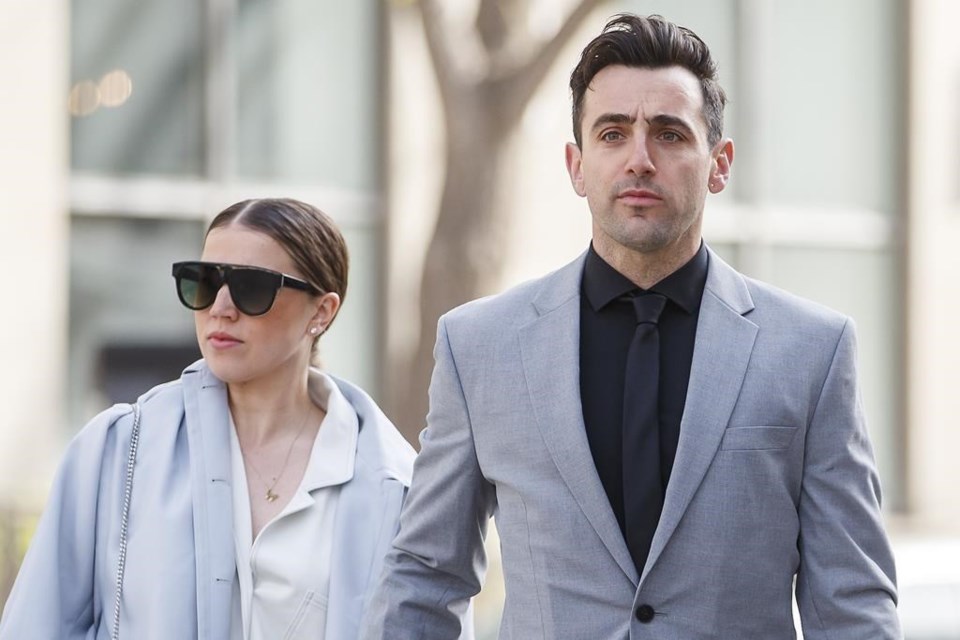TORONTO — Jurors in the sexual assault trial of Canadian musician Jacob Hoggard were told Tuesday that his celebrity status did not put him in a position of power over the two complainants.
The jury, which began its deliberations Tuesday afternoon, sought clarity from the court hours later on what constitutes a relationship of authority for the purpose of establishing consent to sexual activity.
Jurors also asked Ontario Superior Court Justice Gillian Roberts what constitutes fraud when it comes to consent, and whether consent is still valid if it is based on that person's belief in "a lie about love."
Roberts told jurors there is no relationship of power or authority in the case, nor any fraud.
Hoggard, 37, has pleaded not guilty to two counts of sexual assault causing bodily harm and one of sexual interference, a charge that relates to the sexual touching of someone under 16.
Prosecutors allege the Hedley frontman violently and repeatedly raped a teenage fan and a young Ottawa woman in Toronto-area hotel rooms in separate incidents in the fall of 2016.
They also allege he groped the teen backstage after a Hedley show in Toronto in April 2016, when she was 15.
The Crown has highlighted several similarities in the accounts delivered by the complainants, two women who have never met or spoken to each other.
Among those similarities are allegations that Hoggard spat on them, slapped them and called them derogatory names such as "slut" and "whore" during the encounters. Prosecutors say jurors should consider the similarities as indicating a pattern of behaviour.
Defence lawyers allege the groping never happened and the sexual encounters were consensual. They allege the complainants lied about being raped to cover up their embarrassment after being rejected by a "rock star."
The defence also says any similarities between the complainants' accounts can be attributed to Hoggard's lifestyle at the time.
In his testimony last week, Hoggard said he did not have detailed memories of the encounters with the complainants, but that he was certain they consented based on their verbal and non-verbal cues.
He told the court he did not remember spitting, slapping or calling the complainants names, but that those things could have happened since they were among his sexual preferences.
As part of their questions to the court Tuesday evening, jurors also asked whether sex is considered consensual if someone doesn't say no but also doesn't say yes.
Citing a ruling from the Court of Appeal for Ontario, Roberts told them consent in the context of a sexual assault case is about whether the complainant “in her mind wanted the sexual touching to take place."
"It is the complainant’s perspective on the touching that exclusively drives the analysis. It is entirely subjective in nature," she said, quoting from the appeal decision.
In the end, she said, whether the complainant subjectively consented is a matter of credibility that must be determined by the jury based on the evidence.
Jurors also asked for clarification on the evidence given by an expert on the neurobiology of trauma.
Roberts told them that expert's evidence played a small role in the trial and was brought in as a preventive measure so that jurors would not "engage in stereotypical reasoning about how so-called 'real victims' would or should respond to a sexual assault."
This report by The Canadian Press was first published on May 31, 2022.
Paola Loriggio, The Canadian Press


